Directed by Salma Baccar | Written by Amna Rmili | World Premiere at the 35th Carthage Film Festival The pioneering Tunisian filmmaker Salma Baccar
Directed by Salma Baccar | Written by Amna Rmili | World Premiere at the 35th Carthage Film Festival
The pioneering Tunisian filmmaker Salma Baccar returns to the big screen with her latest feature, “La Maison Dorée” (Al Nafoura), an evocative and layered drama that explores the aftermath of one of Tunisia’s most pivotal historical moments. Premiering at the prestigious 35th Carthage Film Festival, the film reaffirms Baccar’s role as a vanguard of Arab and Tunisian cinema, deftly balancing personal storytelling with the collective memory of a nation in transition.
A Poignant Story of Women Amid Political Turmoil
Set in the summer of 2013, La Maison Dorée dives into the political and social tensions surrounding the “Sit-in of Departure” (E’tisam Al Rahil), a significant turning point following the assassination of Mohamed Brahmi, a prominent political figure. Through the lens of three women from diverse backgrounds—Jalila (Reem Al Rayahi), Salwa (Amira Derwish), and Marwa (Raneem Al Ayani)—the film examines the convergence of personal grief and national upheaval.
The three women find themselves sheltering in La Maison Dorée, a mansion in the heart of Tunis. The house, with its hauntingly symbolic aura, becomes both a physical refuge and an emotional battleground. While the women seek solace from the external chaos, their individual struggles—rooted in fear, despair, and loss—intertwine to create a shared strength that transcends their differences.
Baccar transforms the mansion into a metaphor for the homeland itself—a place where unity and fragmentation collide, and where the wounds of the past mingle with the hope for a better future.
Masterful Storytelling: A Fusion of History and Art
Salma Baccar, known for her fearless political commentary and sensitivity to social issues, offers a non-linear narrative that effortlessly oscillates between past and present. By combining documentary realism with dramatic artistry, La Maison Dorée achieves an immersive cinematic experience.
- Symbolic Visuals: Cinematographer Faouzi Thabet crafts striking imagery of the fog-enshrouded mansion, symbolizing the state of limbo Tunisia found itself in during the political crisis.
- Poetic Soundscape: The incorporation of Rabi’a Al Zumor’s poem “Nisaa Baladi Wa Nisf” lends the film a lyrical and meditative quality, highlighting women’s sacrifices and perseverance during times of turmoil.
- Historical Accuracy: Baccar’s experience as a former parliamentarian adds a layer of authenticity, enabling her to connect the film’s fictional narrative with the broader historical reality of Tunisia’s transitional phase.
The Power of Female Solidarity
At its core, La Maison Dorée is an ode to the resilience of Tunisian women. Through the stories of Jalila, Salwa, and Marwa, the film underscores the often-overlooked role women played in Tunisia’s revolution and its aftermath. The characters, each burdened by personal struggles, find empowerment in their shared experience.
Baccar’s portrayal of these women avoids clichés, presenting them as complex, flawed, and courageous individuals. Their transformation from isolated sufferers to collective agents of change reflects a broader societal awakening and serves as a celebration of female solidarity as a cornerstone of progress.
Salma Baccar: A Pioneer of Tunisian Cinema
As one of Tunisia’s most accomplished filmmakers, Salma Baccar has long been at the forefront of politically engaged cinema. Known for groundbreaking works such as “Fatima 75”, “El Jaida”, and “Raqsat Al Nar”, Baccar has consistently used film as a platform to challenge societal norms, advocate for women’s rights, and engage with history.
In La Maison Dorée, Baccar collaborates with celebrated writer Amna Rmili, whose literary expertise adds intellectual and emotional depth to the screenplay. Rmili’s ability to weave poetry into the narrative elevates the film, blending art and politics in a seamless tapestry of storytelling.
Baccar refuses to categorize her work as “women’s cinema,” stating that her films reflect her personal experiences and engagement with societal issues. “Cinema is not confined by gender—it is a reflection of life,” she asserts.
A Cinematic Tribute to Tunisia’s History
The 35th Carthage Film Festival, renowned as one of the most prestigious events celebrating African and Arab cinema, provides a fitting stage for La Maison Dorée. The festival has historically championed films that confront social and political realities, and Baccar’s latest work exemplifies this tradition.
By revisiting the events of 2013, La Maison Dorée captures a defining moment in Tunisia’s post-revolution era. It offers not only a historical reflection but also a meditation on the emotional toll of political upheaval. The film’s themes of unity, grief, and resilience resonate deeply, inviting audiences to reflect on the sacrifices made in pursuit of justice and democracy.
A Masterpiece of Symbolism and Resilience
La Maison Dorée is more than a film—it is a cinematic mosaic that captures the heart and soul of Tunisia’s struggles and triumphs. Baccar’s ability to merge intimate storytelling with grand historical themes positions her among the most visionary filmmakers in Arab cinema.
The mansion, as a microcosm of Tunisia, encapsulates the tension between despair and hope, isolation and unity. As the women within its walls navigate their fears and frustrations, they forge a new understanding of solidarity—one that mirrors the aspirations of an entire nation.
A Turning Point for Arab Cinema
With La Maison Dorée, Salma Baccar delivers a film that is as intellectually profound as it is emotionally stirring. It stands as a testament to the power of cinema to preserve memory, inspire dialogue, and celebrate resilience. Premiering at the 35th Carthage Film Festival, the film marks a milestone not just for Tunisian cinema but for the broader Arab cinematic landscape.
Through its evocative imagery, poetic narrative, and powerful performances, La Maison Dorée cements itself as an essential work that honors the spirit of Tunisia and the enduring strength of its people.
Sari Albeder – Carthage Film Festival 2024 – #JCC2024
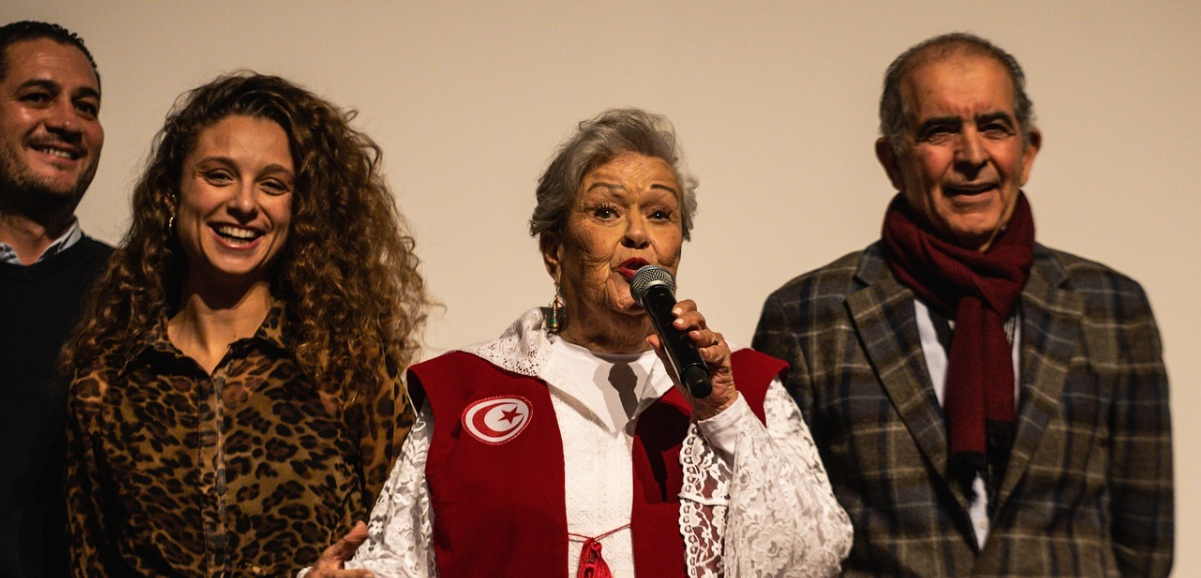
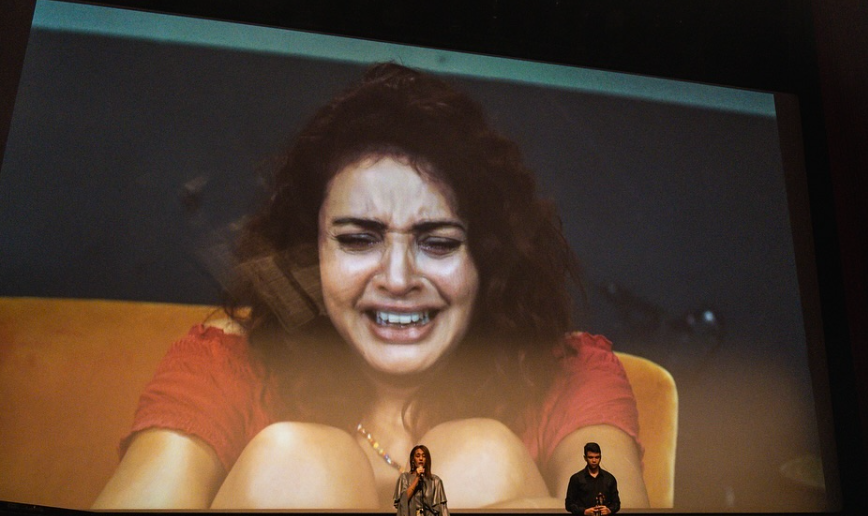
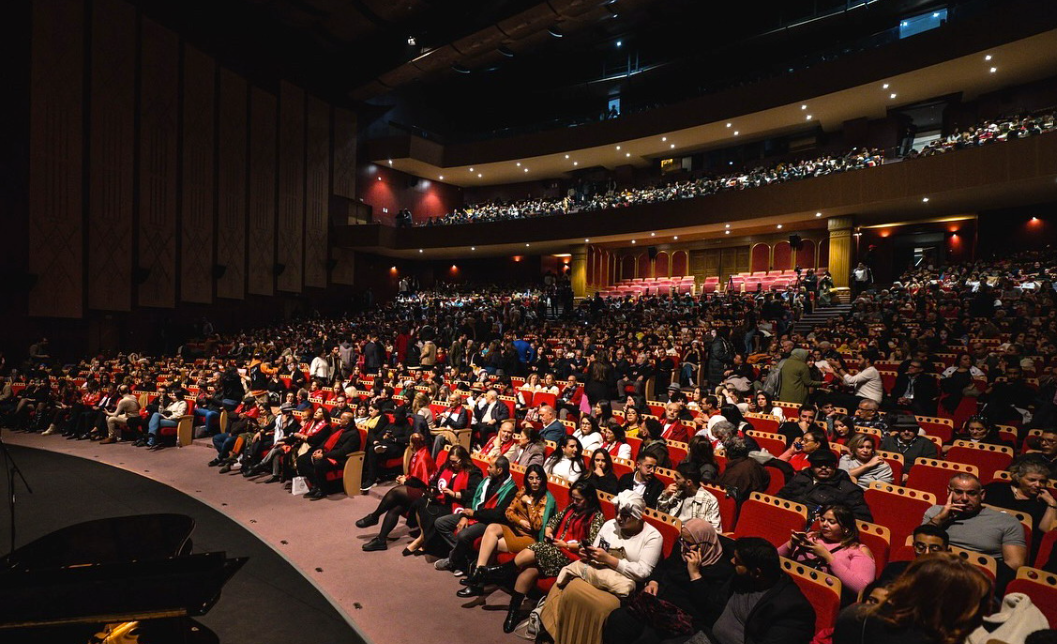
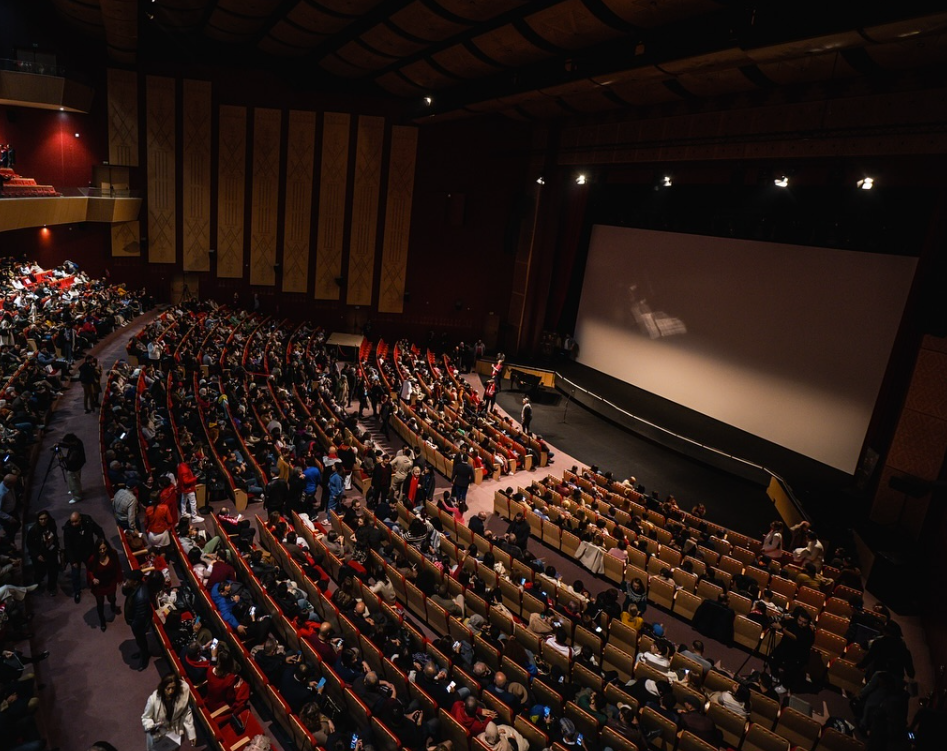
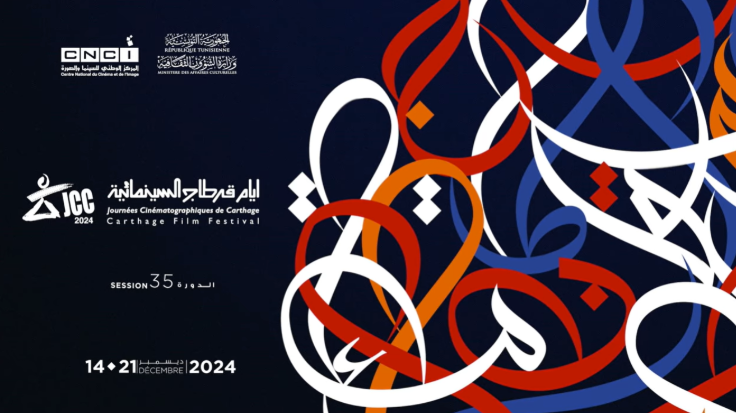
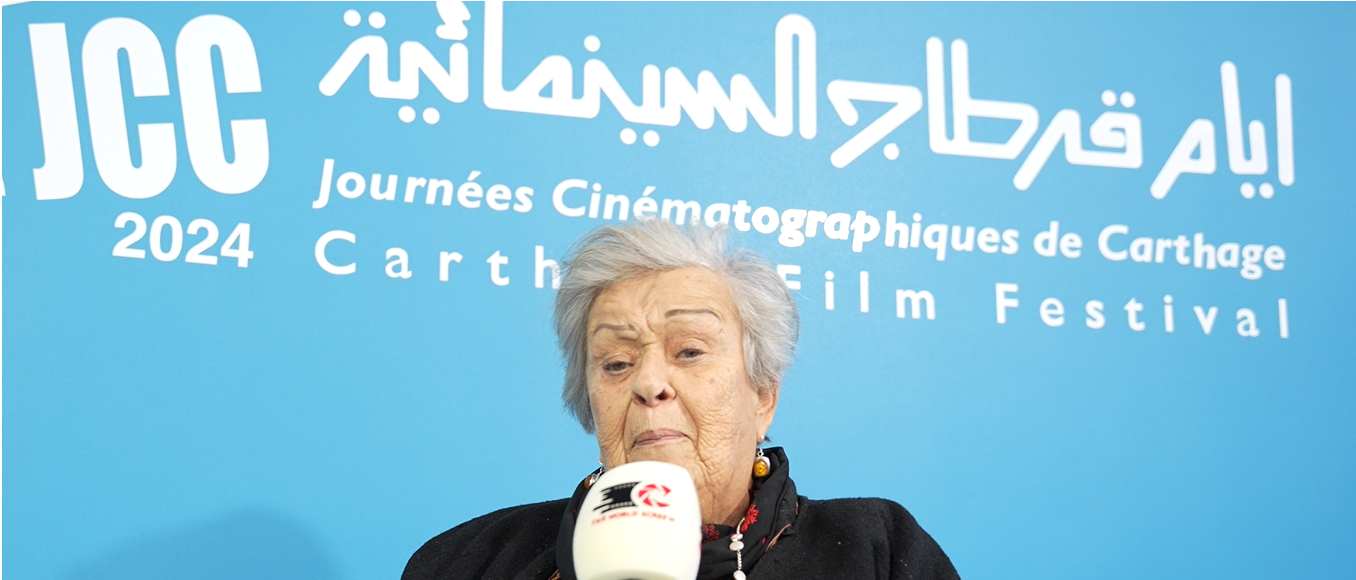
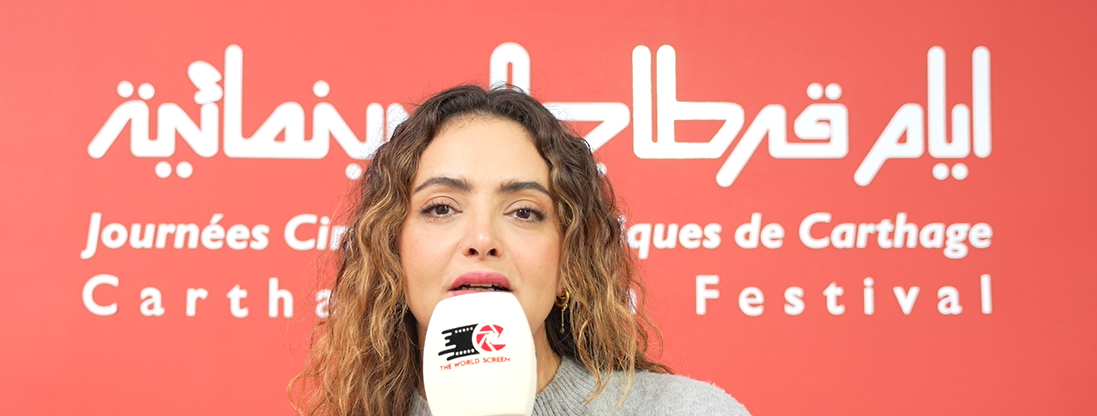
COMMENTS